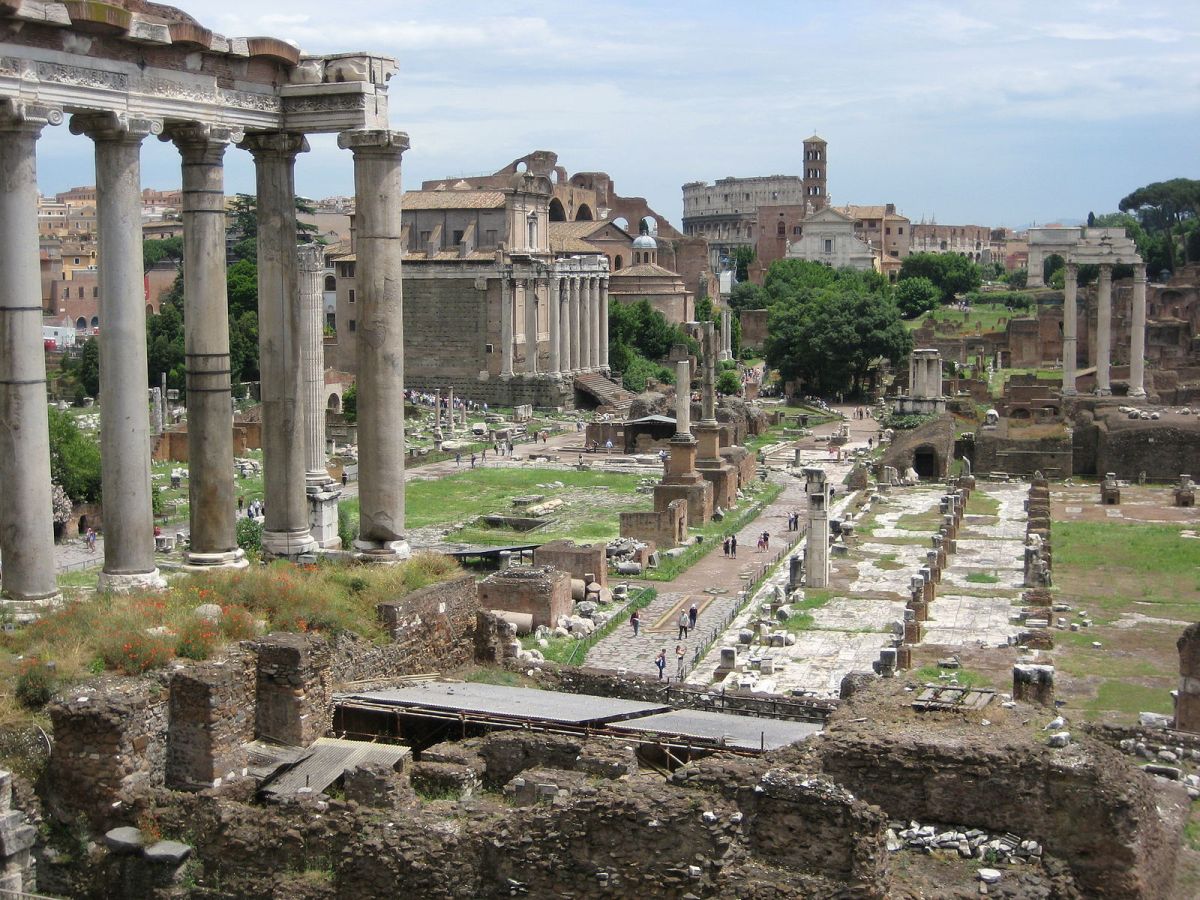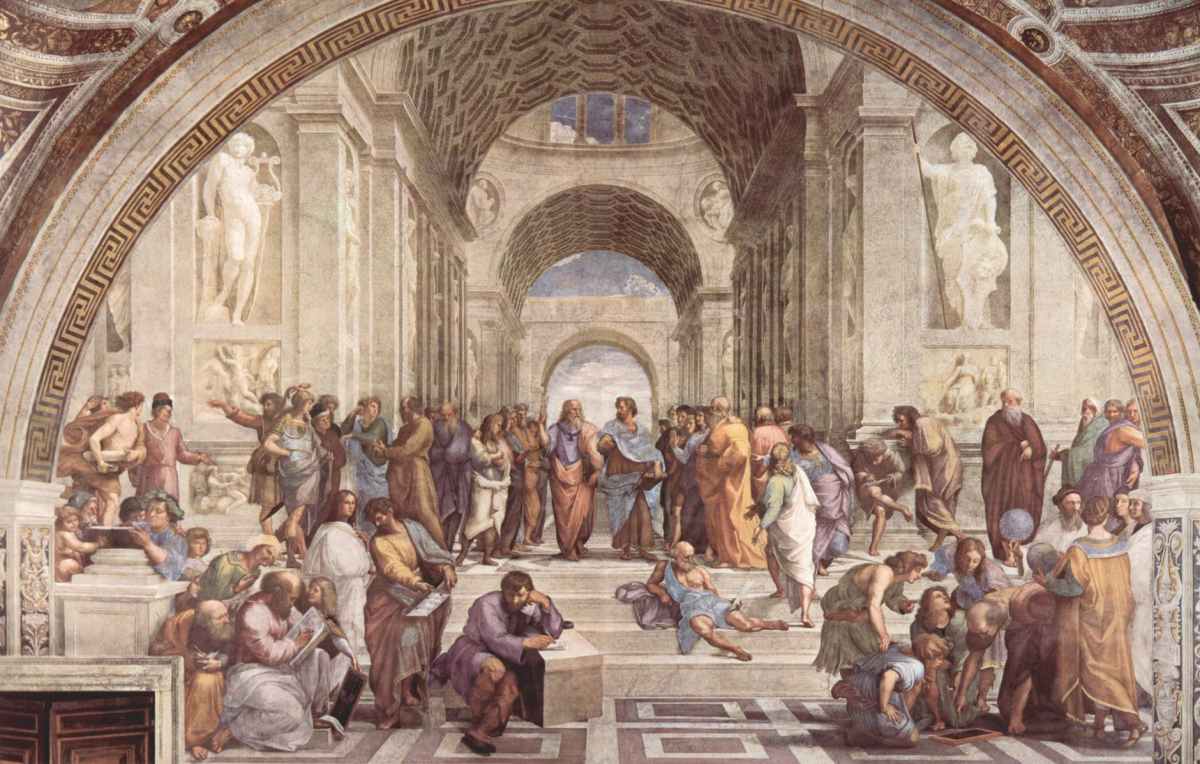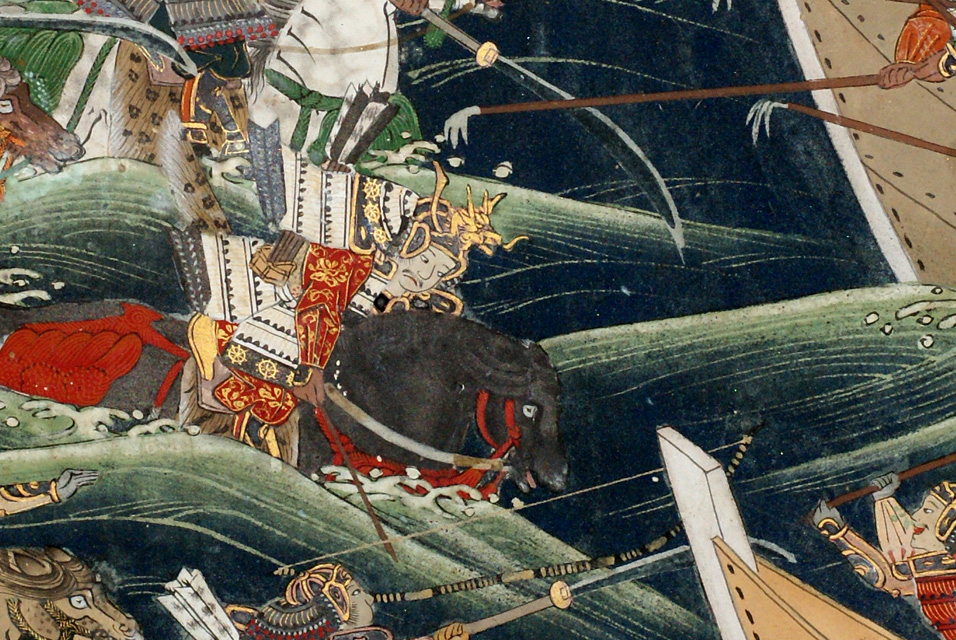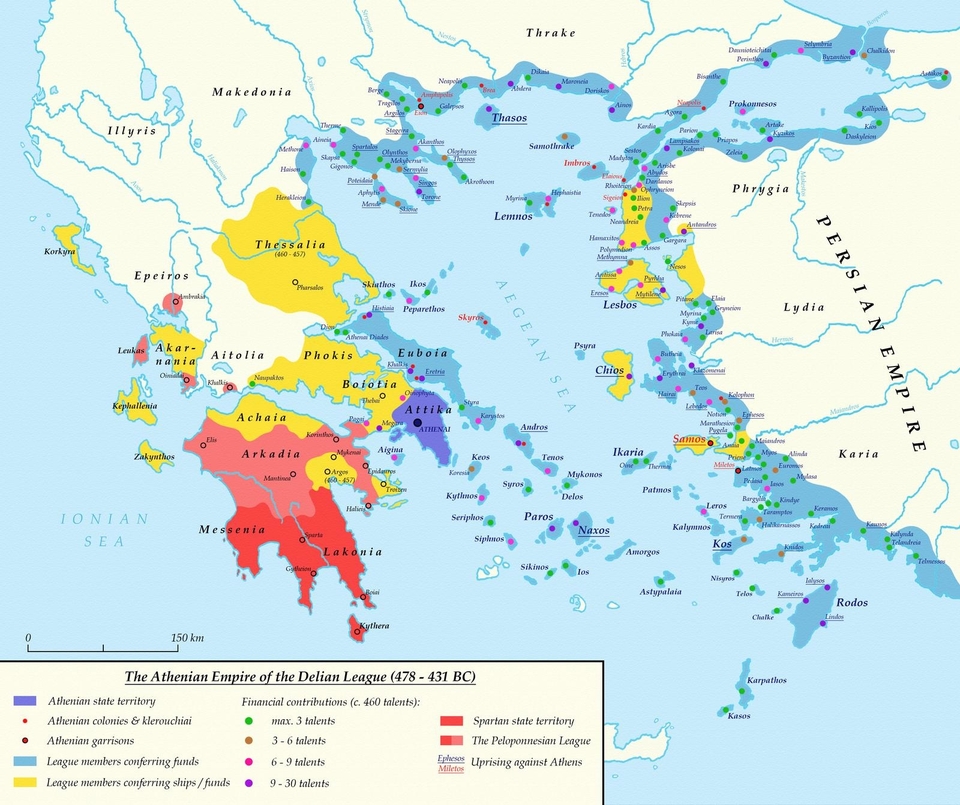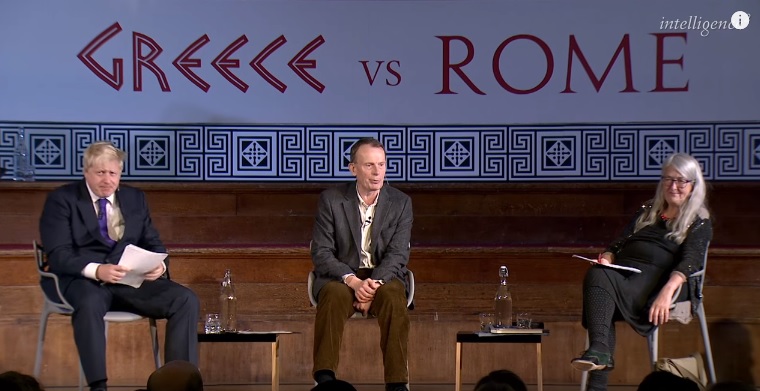This long-read article was written by sixth-former Alexander Norris.
Estimated read time: 7 minutes
The Delian League was formed in 478 BC as an alliance of Greek city-states in the immediate aftermath of the Persian Wars, primarily for the purpose of mutual military support against their common enemy, the Persians. By 454, however, when the League’s treasury with all its contents was moved from the eponymous island of Delos to Athens, after which all meetings of the League’s assembly were held there too, it had de facto ceased to be a confederation of free states, but rather had become a federation under Athenian control, which would later be known as the ‘Athenian Empire’. What this essay will demonstrate is that the transition of the Delian League from alliance to empire was essentially through a centralisation on Athens, caused in part by growing Athenian imperial ambitions and in part by the misjudgement and inaction of the League’s other members.
Ostensibly, the Athenians’ reason for the League’s formation was, as Thucydides writes, ‘to take revenge for their losses by devastating the Persian King’s territory.’1 However, the word Thucydides uses for ‘reason’ – ‘πρόσχημα’ – can more accurately be translated as ‘pretext’ or ‘excuse’. In fact, it literally means ‘a screen in front of [something]’ so Thucydides would seem to be implying that in his view this was not the real reason for establishing the League, as Hunter R. Rawlings makes clear.2 The implication is that the Athenians had imperialistic ambitions from the very formation of the League, being concerned less with fighting the Persians than with furthering their own interests.3 One explanation for this is that Thucydides – writing fifty years later – would have been able to see the Athenians’ later, much more blatant, imperialism, and consequently may have assumed it always to have been present. He could nonetheless acknowledge the Athenians’ point of view as when he reports them as claiming, ‘Fear was our first motive; afterwards honour, and then interest stepped in’4, hinting that they only began trying to gain power for themselves once they realised they had the opportunity of doing it, having set up the League originally for quite a different purpose.
Thucydides indicates, moreover, that the nature of the League (ostensibly a defensive anti-Persian alliance) was more aimed at conquering other Greek city-states than at taking revenge on the Persians; for example, in the expeditions against Skyros, Carystus and Naxos.5 This contrasts strongly with the ‘pretext’ of the League (as Rawlings has again pointed out)6 and makes it appear that the Athenians used all their new-found military might to add to their dominions within Greece. Nonetheless, it’s possible (as with the analysis of their primary intentions) that Thucydides merely chose to lay particular emphasis on these events to demonstrate how shocking their actions were as abuses of their authority, as A. French has argued.7 This would suggest that such campaigns were not only not the norm, but far from it.
The role individual city-states played in the early League is ambiguous, insofar as that Thucydides’ accounts of how the voting systems were organised are unclear – thus, he describes the allies’ voting as ‘κοινῶν ξυνόδων’, ‘πολυψηφίαν’ and ‘ἰσοψήφους’ (‘in a common assembly’, ‘[with] an excess of votes’ and ‘equal in vote’)8 from which it appears that they had theoretically the same power as the Athenians, although this could mean that each city-state including Athens had one vote in a common assembly, or alternatively it could signify – as Meiggs has suggested9 – a bicameral assembly whereby an assembly of the allies had collectively the same power as the Athenian assembly. On one hand, the bicameral arrangement had contemporary precedent, with Sparta using a similar system for its allies, whereas a ’one state, one vote’ policy could have been humiliating for the Athenian assembly, placing it on a par with each of the other states; on the other hand, though, such an arrangement would have been in turn resented by the stronger states which felt Athens was growing too powerful, and the Athenians would have known that they would be able to influence the voting of the smaller states, and so wield far more actual power in that environment than in one where there was a clear distinction between Athenians and non-Athenians – this seems the most convincing explanation.
Athens was clearly the pre-eminent member state of the League from its formation, but actual hegemony of the League is less clear so early on – the reason Athens was chosen over Sparta, which was renowned for its military capabilities and so would seem to be the natural leader of anti-Persian military action (as indeed it was in the Persian Wars) was because of the arrogant behaviour of Pausanias.10 In theory, the Hellenic League from the war continued under Spartan leadership until 46111 and so it is notable that states felt so repelled by Pausanias’ behaviour that they started another alliance. Of course, after the great land power of Sparta, the naval power of Athens was the logical leader (as can be seen by the oaths sworn to them and their allies rather than to the League per se12). By the time of the Athenian Empire, though, there were undertones of political sovereignty which were not evident at the beginning of the League, with Pericles in 449 proposing a ’Congress Decree’ that would have asserted Athenian superiority in no uncertain terms, and the use of imperialistic language such as the inscription: ‘The cities which the Athenians rule.’13 How this developed was in large part due to a development of the economic functioning of the League.
The premise on which the League was founded was that member states would pay a certain sum (‘φόρος’) into a common treasury which was located on the island of Delos, collected either in ships or in money, depending on the state.14 This φόρος would be accumulated by Athenian officials called ‘ἑλληνοταμίαι’ and given to the Assembly to deploy against the Persians. The actual amount states would have paid originally is disputed, since while Thucydides claims the first collection was in total worth 460 talents15 this seems unrealistically high, although Meiggs has pointed out that it could have been lowered in later years for that very reason.16 Furthermore, given the large amount of money that had accumulated in Delos by 454 – 8,000 talents according to Diodorus Siculus17 – it doesn’t seem improbable for the Athenians to have requested such a large amount. As it turned out, much of that went to rebuilding Athens after it had been ravaged by the Persians in 480, but the other members of the League had little control over this. The extraction of tribute from League members was certainly important in ensuring the Athenians had a solid financial foundation for their empire, but it should be remembered that the tribute was agreed by the League’s members, as opposed to other forms of authority which Athens wielded arbitrarily; these are far more significant in turning the League into an empire.
The interference of the Athenians in the member states of the League developed gradually, since at the beginning Meiggs has shown that ‘the autonomy of members was taken for granted and there was no question of their leader interfering in political cases.’18 However, by the time the Old Oligarch was writing he made the point that the Athenians ‘force the allies to sail to Athens for judicial proceedings’19 even going so far as to refer to them as ‘οἱ σύμμαχοι δοῦλοι τοῦ δήμου τῶν Ἀθηναίων’ (’the ally slaves of the people of Athens’).20 Therefore, it is fundamental to understand how the Athenians were able to interfere, judicially and politically, in the affairs of other states.
The judicial interference of which the Old Oligarch speaks is well documented in the later Chalcis Decree of 446, where autonomy was granted to states ‘except in cases involving exile, death, and loss of rights’ and also required the inhabitants to take an oath ‘to be obedient to the Athenian demos.’ Another instance of this was the Phaselis Decree of c.469, where in much the same way judicial cases were transferred to Athens – a apparent violation of their judicial autonomy. Alternatively, though, it could be viewed as merely a form of judicial standardisation, and de Ste. Croix has argued that this arrangement actually favoured Phaselis because the Athenian polemarch’s court was known for giving preference to foreigners.21 The Athenians prided themselves on their legal impartiality (as Thucydides himself claimed: ‘In Athens the laws [are] impartial’22) and the legal standardisation of the League could have benefited all its members. Nonetheless, regardless of the potential benefits of such an imposition, it remains clear that by doing so the Athenians aided their influence and ultimately the formation of the Athenian Empire. More significant than this, though, was the Athenians’ interference into the political functioning of other states.
In terms of political interference, while member states of the League comprised a large variety of seemingly autonomous political systems, there are also examples of the Athenians imposing democracy on them – for example, the Decree of Erythrae in 453. Further instances of political interference include states being forced to join the League (such as happened to Naxos, Melos and Calystus) and the establishment of cleruchies (for example, in Scylos or Melos) – the most significant interference, though, was in states’ forced change of financial status in the League from naval (ship-paying) to tributary (money-paying) such as Thasos in 465. This is significant because Athens had much more control over the use of money than of ships, and hence much greater influence over the tributary states. According to de Ste. Croix, moreover, this was stressed by Thucydides, who consistently ‘conceived the condition of the tributary allies, whom he describes as “ὑποτελεῖς φόρου, φόρῳ ὑπήκοοι”23 as one of “δουλεία” but except on one occasion he is willing to call the naval allies “αὐτόνομοι” and “ἐλεύθεροι”.’24 De Ste. Croix admits that there was no official distinction between the levels of autonomy a state enjoyed since each case was dealt with on its own basis25, but nonetheless the way Athens was able to force states to agree to terms that they had never originally accepted through the influence that supremacy in the League gave them was fundamental in the League’s transition from alliance to empire.
In conclusion, therefore, it was this centralisation of the League’s resources that enabled the Athenians to turn it into an empire, as a result of both Athenian ambitions and fear. As Thucydides has the Athenians say to the Spartans, ‘You turned against us and begun to arouse our suspicion: at this point it was clearly no longer safe for us to risk letting our Empire go, especially as any allies that left us would go over to you’26, and later adds about the Empire that, from Pericles’ point of view, ‘it may have been wrong to take it; it is certainly dangerous to let it go.’27 A third factor crucially comes into play here, and that is the League’s members’ inaction in providing checks and balances to Athenian – this too is highlighted by Thucydides, when he states of the Empire that ‘for this position it was the allies themselves who were to blame’28 implying that had they acted they may have been able to thwart Athenian aspirations. Their inaction allowed the Athenians to centralise their power, which ultimately resulted in the transferral of the League’s treasury to Athens in 454, after which it was managed by the Athenian assembly alone. Thus, the transition of the Delian League from alliance to empire occurred through the concentration of the League’s authority in Athens, which in turn was facilitated by the inertia of the League’s members and their failure to curb Athenian power.

